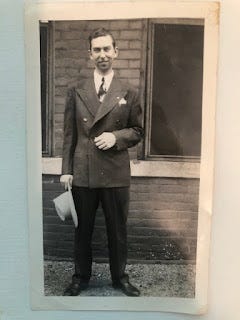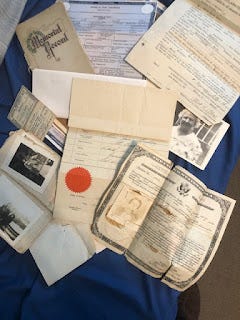One of my aims as a writer is to let individual objects tell their own stories.
In his memoir, “Like a Rolling Stone,” Jann Wenner has a chapter called “The Scoop of the Seventies” devoted to the articles Howard Kohn and I co-authored in 1975 about Patty Hearst and the SLA called “The Inside Story.”
For most of the many months part one of our project was in process, it was a secret known only to the two of us and Jann. We were uncertain when we would publish it, partly because Patty and her SLA colleagues were still underground, and we didn’t want to inadvertently help the FBI find them.
We knew so many revealing details about their life underground.
As fate would have it, the FBI located and arrested Hearst and the others on a Thursday in September and publication of our article was set for the following Monday. All hell would be breaking loose upon publication; Jann had arranged for NBC to cover the release exclusively, with the rest of the media invited to the office for what would prove to be a raucous press conference Monday morning.
Jann declared we had “the biggest news story in the world.”
Security was tight.
The entire staff of the magazine was secluded off at a resort near Big Sur for the weekend with the lone exceptions of Howard and me. We stayed in San Francisco to tape our interview with NBC before we headed south to join everyone else.
Finally, late Saturday afternoon, in Jann’s words, “Howard and David made it down…brandishing a copy of the new issue that no one had seen yet.”
A photo of the copy of the magazine we brandished that night is at the top of this post, with the words handwritten up top “Do Not Leave This Lay Around — David.”
So that is how this particular object tells its story. It will celebrate its 48th birthday come September.
LINKS:
Russia accuses Wagner chief of urging "armed rebellion" (CNN)
Wagner chief claims to have seized military sites in Rostov as Moscow implements anti-terror measures (Guardian)
Wagner chief blames war on defence minister (BBC)
U.S. Navy Heard What It Believed Was Titan Implosion Days Ago (WSJ)
Supreme Court hands Biden a rare win on immigration enforcement, deportations (USA Today)
Trump Prosecutors Struggled Over Motives. Then They Heard the Tape. (WSJ)
Supply chains are back to normal. Why is inflation still so high? (Economist)
Remote work appears to be here to stay, especially for women (WP)
The median age in the U.S. reaches a record high, approaching 40 years old (Axios)
Biden Seeks to Bolster Ties With Modi While Soft-Pedaling Differences (NYT)
Taliban official letter reinforces bar of female aid staff in southern Kandahar (Reuters)
Charities say Taliban intimidation diverts aid to Taliban members and causes (NPR)
The Taliban have launched an impressive new war on drugs (Economist)
Has COVID’s Patient Zero Finally Been Named? (Atlantic)
Intelligence report says US split on Covid-19 origins (BBC)
Companies That Replace People with AI Will Get Left Behind (Harvard Business Review)
The Last AI Boom Didn't Kill Jobs. Feel Better? (Wired)
How will AI affect workers? Tech waves of the past show how unpredictable the path can be (The Conversation)
US-based generative AI job postings up 20% in May, Indeed data show (Reuters)
Kurt Vonnegut Warned Us About the Dangers of Automation (The Progressive)
Go Ahead, Try to Explain Milk (Atlantic)
Rose Byrne on her "Platonic" chemistry with Seth Rogen and the shocking reactions to "Physical" (Salon)
‘No Hard Feelings’ shows off Jennifer Lawrence in a raunchy comedy with a deeper core (Salon)
Company’s New Dress Code Prohibits All Clothing But Little Sailor Suits (The Onion)



